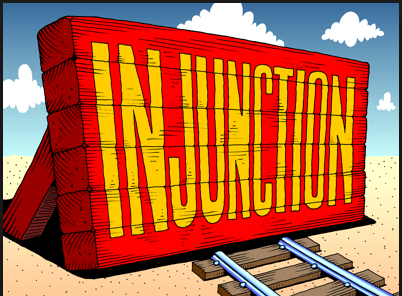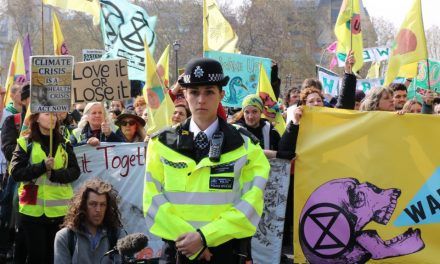Impossible, I hear you say. Everyone knows that the rule in Bonnard v Perryman [1891] 2 Ch 269 precludes it. A claimant will ordinarily be unable to obtain an interim injunction to restrain an apprehended alleged defamatory publication where a defendant states an intention to raise an affirmative defence. The rule has been in place since the 1890s. It has been re-affirmed in the Court of Appeal in modern times in Holley v Smyth [1998] 1 All ER 852 and post the Human Rights Act in Greene v Associated Newspapers [2005] 2 WLR 281. The Supreme Court in Khuja v Times Newspapers [2019] AC 161 proceeded on the basis that the rule was good law. Lord Sumption JSC explaining at [19] that,
The rule originated in the division between the functions of judge and jury, the question of libel or no libel being exclusively for the jury. But in its modern form, its function is to balance the freedom of the press and the right of the claimant to protect his reputation, by confining the plaintiff to the post-publication remedies to which he may prove himself entitled at a trial. The media are at liberty to publish if they are willing to take the risk of liability in damages.
And yet, whilst its death has been predicted before, Bonnard’s time really may soon be up. Writing before the decision of the Court of Appeal in ZXC v Bloomberg LP [2020] EWCA Civ 611, Professor David Rolph commented in his illuminating chapter on the case in Landmark Cases in Defamation Law (Hart Publishing, 2019):
The policy of the law has decisively changed. It is now wrong to publish true but private information about a person. It is no longer possible to assert that there is an unalloyed public interest in speaking the truth about a person. The protection of privacy as a human right will eventually necessitate a reconsideration of Bonnard v Perryman. Not all landmarks stand for ever.
Before I consider whether Bonnard should be toppled from its pedestal, I will address how to get a libel injunction without disturbing the decision.
Have a go
The jurisdiction to obtain an injunction in defamation may be delicate but it exists.
Not every defendant is able to raise an affirmative defence to a claim and may not be able to do so once meaning is determined, which can be done at ‘any time in a defamation claim’ (CPR 53, PD, para 6.1).
Where a defendant decides to defend an application for an interim injunction to restrain publication, it will have to put in evidence demonstrating that it has an arguable basis to defend a claim. Forcing a defendant to set out in evidence how it can justify the publication or continued publication of a statement, may lead it to reconsider whether it can do so.
In Sunderland Housing Corporation v Baines [2006] EWHC 2359 (QB), the claimants sought an interim injunction in libel, as well as under the Protection from Harassment Act 1997, in respect of statements already published on a website. Eady J considered at [18]-[19] that:
Where there are many and various defamatory allegations, some of which are undoubtedly very serious, alleging criminal misconduct and matters undoubtedly of great public interest (which, in a sense, cuts both ways), it seems to me that it must be right that a defendant should be required at least to identify the extent to which he proposes and intends to justify. It will not do simply to put in a blanket statement of intention or hope and leave it at that. It is, in my judgment, too cavalier.
The injunction was granted to the personal claimant against the first defendant because, whilst the first defendant indicated an intention to defend the claim, there was no evidence put before the court by him to set against the second claimant’s ‘very clear denials.’ The rule in Bonnard was not engaged at that stage.
This strategy would be difficult for a claimant where publication has not yet taken place and it is not known precisely what words the subject of the threatened publication are, but these days there may be online publication that would not in principle prevent the grant of an interim injunction to restrain further publication of all or some imputations. Other factors also may come into play, such as whether serious harm can be said to be likely to be caused.
Even if the court ultimately rejects the application, the process of forcing a defendant to engage may persuade it to change course, particularly if it is provided with sufficient evidence to demonstrate that all or some of the claims intended to be made are false. To publish in such circumstances might risk a malice finding. Forcing a defendant to re-assess in this way has happened in cases where broadcasters of consumer programmes have given advance notice by way of a ‘right to reply’ to individuals and companies.
Take it on
In rare cases, even if Bonnard is engaged, a claimant will be able to demonstrate that no affirmative defence will succeed. In addition to Sunderland Housing, in LJY v Persons Unknown [2018] EMLR 19 the claimant, who had been targeted for an attempt at blackmail, accepted that he was concerned about his reputation. He adduced evidence that the allegations were untrue. Warby J said at [44]:
Mr Dean’s answer is that if the defamation rule applies, his case meets the necessary standard. For the reasons I have already given, I agree. It follows that in my judgment the injunction I am granting is also justified on the basis that the threatened publication would be libellous. The allegation is plainly likely to cause serious harm to the claimant’s reputation, and damages could not be an adequate remedy. There is nothing in the material before me to indicate any sufficient basis for a defence of truth or public interest.
Distinguish it
It may be thought to be hard to distinguish a case that has given rise to a rule of law, but the issue came up in LJY. The Court of Appeal in Holley v Smyth had reaffirmed Bonnard and Holley has been taken to be authority for the proposition that a defendant’s motive in publishing defamatory material about a claimant is irrelevant because truth is a complete defence to a libel claim. However, in obiter comments in LJY at [47], Warby J referred to the judgments in Holley and suggested that the rule may not apply in cases which disclose a good arguable case in blackmail.
Call it something else
Other than very rarely, it used to be thought to be impermissible to obtain an interim injunction to protect reputation by relying upon a different cause of action. It was known as ‘seeking to circumvent the rule in Bonnard v Perryman’ or cause of action shopping’.
In Terry v Persons Unknown [2010] EMLR 16 Tugendhat J rejected an application for an interim injunction in misuse of private information and breach of confidence, on the basis that the application was really concerned with protecting the claimant’s reputation. Having reviewed the relevant authorities, the Judge said at [88] and then at [95],
It appears to me…. that it is a matter for the court to decide whether the principle of free speech prevails or not, and that it does not depend solely upon the choice of the claimant as to his cause of action.…. This claim is essentially a business matter for LNS. That is why the assembling of the evidence has been put into the hands of the business partners and not of the solicitors. My present view is that the real basis for the concern of LNS is likely to be the impact of any adverse publicity upon the business of earning sponsorship and similar income.
Following the recent decision of the Court of Appeal in ZXC v Bloomberg LP [2020] EWCA Civ 611, it is going to be very hard for defendants to argue that a claimant placing reliance upon a different cause of action to protect reputation is circumventing Bonnard. Mr Justice Nicklin granted an injunction in misuse of private information to prohibit the defendant from revealing the identity of the claimant who was under investigation by a law enforcement agency. The Court of Appeal upheld that decision. It held that ZXC was entitled to an injunction in part because of the damage that would be caused to his reputation from being known to be under investigation by the state.
Writing before the decision of the Court of Appeal in ZXC, Professor Rolph said that ‘the tension between defamation and privacy for the purposes of injunctive relief cannot be avoided or minimised indefinitely’. That tension is greater now that the Court of Appeal has held that ZXC could rely upon privacy to obtain an interim injunction to guard against damage to his reputation. One of the traditional justifications for distinguishing between the causes of action, that damages would be an adequate remedy in respect of the publication of a libel but not private information, has been rejected.
Overturn it
Finally, to the big question, should the case be overturned? Assuming the right sets of facts can be found, it will turn on the importance attached to the need for coherence in this field.
Professor Rolph identifies academics, authors of the leading practitioners’ texts and judges who appear willing to revisit it on the basis that a differential approach to injunctive relief for defamation and privacy is no longer justifiable.
I have drawn attention to what was said in LJY, above. Nicklin J commented in Taveta Investments Ltd v Financial Reporting Council [2018] EWHC 1662 (Admin) that he had ‘serious reservations as to whether setting the bar so high is still correct or can be justified’ and provided two principal reasons (or potential grounds of appeal): the removal of the entitlement to jury trial and the unjustified presumptive priority that the rule gives to freedom of expression at the interim stage in private law litigation having regard to the case law where articles 8 and 10 of the Convention are both engaged.
On the other hand, the rule is embedded across common law jurisdictions and has been for many years (although there has been much debate in Australia). There is an aversion to prior restraint inherent in the common law and Strasbourg jurisprudence. Its continued existence will be supported by the media and some judges because it is a straightforward test to apply at the interim stage. It promotes legal certainty.
The fact that reputation and privacy are aspects of the same human right is not a complete justification for a single test. Not all defamation and privacy cases overlap – see Terry at [96]. Not all claimants are the same. The rule may provide valuable protection for defendants against claims for prior restraint by companies, whilst personal claimants have other options.
Parliament chose not to address the issue, as it could have done, when it passed the Defamation Act 2013. The fact that Parliament had not mentioned it when passing s12, Human Rights Act was a point made by the Court of Appeal in Greene v Associated Newspapers.
And it may be said to be unnecessary to overrule Bonnard v Perryman given the developments outlined above but if the Supreme Court did knock it off its perch, it would likely emphasise the need in defamation cases for first instance judges to be very cautious before granting prior restraint, particularly those involving the media, just as the Court of Appeal has done in public law publication cases (e.g. R v Office for Standards in Education, Children’s Services and Skills ex parte the Governing Body of X [2020] EMLR 22).

Adam Speker was Called to the Bar in 1999 and took silk in 2020, having been rated as one of only two ‘star individual’ juniors in defamation and privacy in the Chambers & Partners UK Bar Guide. Adam specialises in all aspects of media and communications law including defamation, privacy, breach of confidence, harassment and data protection.




